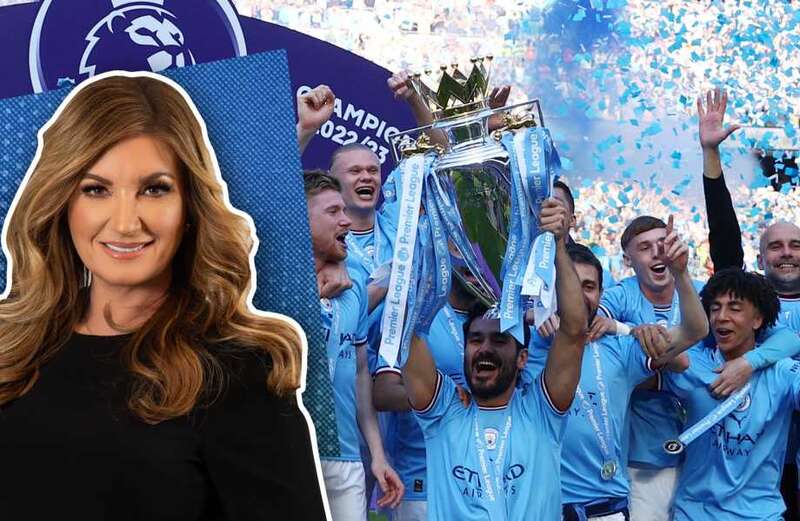THE Premier League’s four-year £6.7billion TV deal is testimony to the world’s greatest game.
Sky and TNT have already proved that they can provide football programmes of the highest quality, with no expense spared.

Although BBC and ITV produce very watchable programmes, they don’t have the reserves to challenge the contract winners for the four seasons starting from 2025-26.
Yes, it is a lot of money, too. And a good slice of that will find its way through the football pyramid, as well as to many good causes.
There will be grumbles about the amount, of course there will.
Mostly from those who are green with envy.
 Jurgen Klopp's approach with Robert Lewandowski bodes well for Darwin Nunez
Jurgen Klopp's approach with Robert Lewandowski bodes well for Darwin Nunez
I suspect they are not jealous of what we have but more of what they can’t have.
But those moans won’t come from the EFL as they are expecting to have a share of the money by tapping into the goodwill of the Premier League, this despite the fact that most will never play in the Prem — or contribute to it.
But there’s no doubt that all the EFL’s interlocked divisions are very important to our game, not even mega-rich sheikhs or US billionaires are altogether ignorant of this — although it might be regarded as well below the status of a fourth wife or a racecourse stable.
I suspect a shortly-to-be-appointed football regulator will be anxious to make a mark on the divvy-out of television earnings, otherwise known as a tax.
To do this though, they will need some very specific primary legislation to take away a commercial organisation’s cash to give it to a competitor, otherwise known as nationalisation.
FREE BETS - BEST BETTING OFFERS & NEW CUSTOMER BONUSES
The regulator may cough and splutter all it likes but it has got to be aware that over-interference by such Government appointments has dangers in a similar way that welcomes to VAR have turned to hatred of delays and ridiculous rulings by people who think they see better but don’t.
The new deal will help withstand the sweet talk of those barons of foreign clubs who, well aware of the success of the Premier League, tried and went much too close to forming a closed European Super League with six of our best.
Some on the Continent still dream of potential supremacy, rather in the way of a fascist or communist government in waiting.
The Premier League steams ahead, a massively successful organisation whose enterprise shames too many others in this country.
 Celtic icon Frank McGarvey dies aged 66 as tributes paid to hero after cancer fight
Celtic icon Frank McGarvey dies aged 66 as tributes paid to hero after cancer fight
No wonder that big businessmen want to butt in — Americans, Chinese, Arab States, even one or two Englishmen.
And the world watches, too. The league has the biggest viewing figures of them all, and a number of different TV contracts abroad.
Have no doubts, Fifa and Uefa see it as serious competition, which is why they simply love the idea of a UK regulator as they hope that will make the Prem less investable, less competitive and less agile.
Let’s hope they are wrong.

English football has been dragged into multi-national eminence in the 30 years since the PL was founded.
Dozens of countries are represented in teams to the extent that when, for instance, two South Koreans feature among the leading scorers — Son Heung-min of Tottenham and Wolves striker Hwang Hee-chan — no one here makes a point of it.
It happens, full stop, new paragraph.
Our clubs will stay top of the world’s watch list and continue to be a major industry, currently employing 94,000 people. That must not make the league a cash cow.
Indeed, I have one or two reservations, in particular, that the increase from our current agreement is under the rate of inflation — and with 13 or 14 Premier League clubs all making a loss at the moment, I apologise if we are a little slow in cracking open the champagne.
This should be underlined by the fact that, quite simply, players’ contracts seem to be increasing at the same rate of inflation in Venezuela, some 360 per cent!
Which is why the net debt of Prem clubs amounts to £2.67bn.
Dust-dry information perhaps, but a worry in boardrooms.
Still, as Hammers vice-chairman, I am proud that the league contributes £7.6bn to the wider UK economy.
And volumes to audiences everywhere.
It has to be one of the UK greatest exports — let’s hope it stays that way.


































